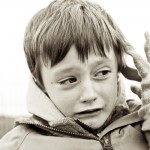
The sexual abuse of children is a worldwide problem that has lasting and sometimes lifelong impacts on the child, their family and the community. There is a substantial amount of research that now demonstrates the long term impacts of child sexual abuse which includes: The increased incidence of all types of mental health difficulties; Increased [read the full story…]












